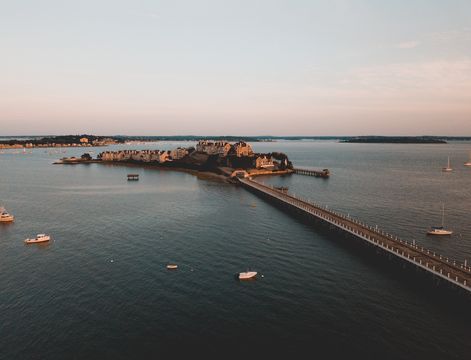
Policy changes of AQUARES project
AQUARES project has contributed to the building of a strong community amongst partners, water providers and stakeholders.
AQUARES brings together 10 partners from 9 countries, to achieve efficient water management through water reuse, profit from the opportunities in the water market, and secure the protection of water bodies.
Water reuse is a key way to both promote resource efficiency in water scarce areas of Europe, and to profit from opportunities in the expanding water market, thereby alleviating pressure on wetlands and littoral areas of Europe. The EC "Strategic Implementation Plan of the European Innovation Partnership on Water”, was set in place to promote and support efficient water management in Europe where water scarcity affects 11% of its population.
In this context, AQUARES will support public authorities to initiate efforts, join forces and exchange experiences to:
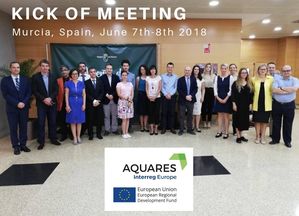
€1,588,519.00
Environment and resource efficiency
MAIN FEATURES
ERDF ROP Murcia (POFEDER) advances a new development model for Murcia congruent with Europe 2020 strategy, and the EC Position Paper for Spain. POFEDER allocates 82,5 million € (27.85% of total funds ) to thematic objective 6 (TO6): Preserving and protecting the environment and promoting resource efficiency, and the investment priority “Investing in the water sector to meet the requirements of the Union’s environmental acquis”. POFEDER has the following relevant to water management TO6 specific objectives:
SO.6.2.1: Integrate the acquis of the EU Water Framework Directive through infrastructure investments in sanitation and reuse of waste water, and in improving wastewater treatment and disposal systems from land to sea.
SO.6.4.1: Alleviate erosion, salinization, desertification, and deforestation
REASONS FOR IMPROVEMENT
Despite acknowledging the need to improve water management and protect wetlands in Murcia, POFEDER has not managed to overcome the fragmented application of water efficient management in its rural and urban sectors, thereby leading to wastes of water supply and significant wastewater discharges in wetlands (e.g. Mar Menor lagoon). Policies to promote water efficiency technological innovations, such as water reuse technologies (e.g. efficient stormwater treatment systems, anaerobic treatment), and innovative water management systems will ensure that POFEDER can improve wastewater treatment and quality of water in Murcia littoral areas.
MAIN FEATURES
The Common Ministerial Decision no 145116 (KYA-145116) was designed to promote the reuse of processed liquid waste and to improve the water balance of aquifers in Greece, whilst ensuring the protection of public health. KYA-145116 ultimate aim is to deal with the effects of: (i) advancing droughts in the Mediterranean due to climate change, (ii) continuous degradation of groundwater aquifers in Greece. KYA-145116 includes the following provisions, which will be addressed by AQUARES:
-Water reuse in the agricultural and industrial sectors (article 4)
-Enrichment of aquifers via increased water management efficiency (article 5)
-Water reuse in urban and suburban zones (article 6)
-The whole process of licensing monitoring and assessment procedures of water reuse projects (article 7)
REASONS FOR IMPROVEMENT
KYA-145116 was designed especially for the promotion and support of water reuse in Greece, and outlines efficiently the priority sectors for the application of water reuse. However, it does not refer specifically to provisions for a) the efficient monitoring of the compliance of water reuse projects with the latest water reuse quality standards, b) the promotion, support and use of latest water reuse technological ecoinnovations, c) the promotion of measures specifically adapted to the needs of Greek wetlands. Furthermore, KYA-145116 lacks any references to the coordination of its projects with other projects funded by ERDF policy instruments.
MAIN FEATURES
ROP of LODZKIE Voivodeship aims to support the crucial areas for the development of the Region of Lodzkie taking into account the region's EU 2020 strategic objectives, its smart specialisation strategy, and its characteristics and potential. Efficient water management is promoted under ROPLODZKIE Priority Axis V: Environmental protection, supported by addressing climate change, improving waste disposal and surface water quality, preventing drainage and water & land pollution, and protecting biodiversity.
REASONS FOR IMPROVEMENT
Supporting and promoting water reuse will strengthen resource efficiency in LODZKIE and concretise & specify the following ROPLODZKIE objectives within Priority Axis 5:
-By providing an alternative source of water and increasing water supply, water reuse will reduce aquifer overexploitation and flood risk, thereby mitigating climate change impact.
-Water reuse ecoinnovations will provide a clear path on how to modernise sewerage, water supply and sewage systems in LODZKIE urban zones, thereby increasing water supply and reducing the impact of urban consumption of water on LODZKIE water bodies.
- Water reuse ecoinnovations can increase the economic and technical feasibility of improvements in the sewerage system of agglomerations from 2 - 10 thousand.
-By increasing water supply and upgrading sewerage, water reuse can further increase the percentage of LODZKIE population using a sewage system that complies with EU directives
MAIN FEATURES
Operational Programme Enrvironment (OPE) main objective is to ensure a quality living environment for the inhabitants of Czech Republic, by promoting resource efficiency, eliminating the negative human impact on the environment and mitigating climate change. OPE includes provisions for ERDF investment priority “Preserving and protecting the environment and promoting resource efficiency: investments in the water sector to meet the EU acquis requirements in the field of environment, and addressing the needs of investment”. OPE aims to resolve the still unsatisfactory status of surface and ground water (municipal sources of pollution, impaired quality of some watercourses, eutrophication, industrial and agricultural sources of pollution), ensure drinking water supply and increase the retention capacity of the landscape. Efficient water management is addressed by OPE “Priority Axis 1: Improvement of water quality and reduction of flood risks”
REASONS FOR IMPROVEMENT
Even though provisions for water reuse, in the form of measures to promote the Blueprint to safeguard Europe´s water resources, are included in OPE, the latter can benefit from further specification of the policies that promote and support the adoption of water reuse ecoinnovations that limit the amount of polluted wastewater discharges (nitrates, urban wastewater, industrial emissions), and increase water supply without increasing aquifer overexploitation.
MAIN FEATURES
Operational Programme I (OPI) supports the Partnership Agreement for Malta, i.e. the overarching strategy towards EU2020 aims, i.e. fostering competitiveness, building a resource efficient economy, and investing in human capital. OPI addresses ERDF objective “06 - Preserving and protecting the environment and promoting resource efficiency”, and investment priority “6ii - Investing in the water sector to meet the requirements of the Union's environmental acquis”, by advancing the following:
-Improve water management sustainability through improved efficiency.
-Support the achievement of good quantitative and qualitative status of scarce water resources.
-Improve water production and distribution efficiency and reduce its environmental impact
REASONS FOR IMPROVEMENT
Water reuse and efficient water management will further specify measures included in the—addressing water efficiency—OPI Priority Axis 10: Investing in a more environmentally-friendly society. Water reuse ecoinnovations and their constant evolution need to be taken into account in the implementation of OPI since they can support the shift towards a more resource efficient economy, by increasing water efficiency in housing, agriculture and tourism. This will be achieved by technologies like treated sewage effluent, boosting sustainable housing, agriculture and tourism, R&I and ecoinnovation in the water market and thus upgrading water management efficiency of both Malta and the less developed Gozo.
MAIN FEATURES
Lombardy ROP (PORFESR) promotes the integration of the Europe 2020 strategy in Lombardy, by focusing on 3 development principles, i.e. intelligent, sustainable and inclusive growth. In tourism, PORFESR has allocated 19 million € to promote priority axis 6c - Preserve, protect, promote and develop the Natural and cultural heritage, by supporting the following measures:
-Preserve the natural capital present in Lombardy locations (in protected areas and in the Natura 2000 network) with a high potential for development based on their attractivenes.
-Address the need to promote actor networks to overcome the atomistic logic that prevents sustainable development in the tourist sector.
-Address the need to define integrated strategies for sustainable management of tourist destinations
REASONS FOR IMPROVEMENT
PORFESR aims to develop sustainable tourism in areas of rich natural capital, increase the attractiveness of these areas, and design integrated affordable alternative tourism types (e.g. geotourism, ecotourism). Lombardy is full of attractive wetlands (rivers, lakes, canals) and applying water reuse and efficient water management techniques through PORFESR projects, can alleviate pressures on their water balance by providing alternative supply of water for the energy, industrial, urban and agricultural sectors. Water reuse can improve Lombardy’s branding as a water-efficient touristic destination and this will incentivise water efficiency initiatives.
MAIN FEATURES
The Lower Saxon operational programme (LSROP) promotes a regional innovation strategy for intelligent specialisation that relies on knowledge, innovation, sustainability and resource efficiency. LSROP includes provisions about efficient water management under the thematic goal 04 - Promoting efforts to reduce CO2 emissions in all sectors of the economy, and mostly under investment priority 4e - Promote strategies to reduce CO2 emissions for all areas, in particular urban areas, including the promotion of sustainable multimodal urban mobility and climate change-related adaptation measures. LSROP has allocated 66 million € for this aim
REASONS FOR IMPROVEMENT
Efficient water management is a strategic priority as it is related to risks of waste of water resources, and the subsequent erosion and degradation of the soil’s carbon storage capacity. LSROP aims to reduce CO2 emissions caused by these problems, by realising the great potential of carbon storage in Lower Saxony organic soils. Water efficiency and water reuse ecoinnovations can be used to further specify and concretise LSROP’s strategy of a) increasing public wastewater systems’ efficiency, b) finding other sources of water to reduce drainage of the Lower Saxony marshes, major cause of release of large amounts of CO2 into the atmosphere, c) restoring natural ecosystems in wetlands and maintaining water balance in Lower Saxony, and d) achieve cost-effectiveness improvements in the renovation of buildings
MAIN FEATURES
Operational programme “Growth and Employment” (OPGE) aims to achieve key national development priorities alongside Europe 2020 objectives, with a focus on Latvia's competitiveness. 14.1% of OPGE allocation will be spent on measures for the environment, sustainable use of resources and tackling climate change (priority axis 5), including investments to ensure the fulfilment of the EU environmental acquis. Within this axis, measures 48, 53 and 57 of OPGE refer to the sustainable and efficient management of water resources.
REASONS FOR IMPROVEMENT
Despite OPGE, Latvia’s main water sources and wetlands (Daugava river, Gulf of Riga) are poorly managed, with low water efficiency and pollution
To achieve OPGE Measure 48 targets (improving outdated water supply networks with high water losses and unsustainable use of water resources), OPGE will have to strengthen its implementation by supporting water reuse ecoinnovations.
Via promoting resource-saving ecoinnovations, such as water reuse technologies and business models, OPGE will further specialise its Measure 53 that aims to ensure sustainable economic development with sustainable use of water resources.
As per OPGE Measure 57, water reuse ecoinnovations can form part of water efficiency investments for agglomerations with more than 2000 people, to reduce unplanned environmental risks from wastewater, improve and modernise drinking water supply, and decrease the risk of wastewater emissions into water bodies
MAIN FEATURES
The Operational Programme (OPIEUCP) promotes prosper development in Slovenia while taking into account the features of its 2 less developed regions - Western and Eastern Slovenia. OPIEUCP allocates 400 million € (13.33% of total funds) to thematic objective 6 (TO6): "Preserving and protecting the environment and promoting resource efficiency", and the investment priority “Investing in the water sector to meet the requirements of the Union’s environmental acquis”. TO6 key objectives are the following:
- Establish adequate wastewater collection and treatment infrastructure in agglomerations equalling or above 2,000 PE in accordance with the Urban Waste Water Directive.
- Develop systems of reliable access to healthy drinking water as laid down in the Drinking Water Directive (98/83/EC)
- Resolve the problem of low quality water
REASONS FOR IMPROVEMENT
Even though OPIEUCP acknowledges the need for further investment in environmental infrastructure, to achieve the targets set under Directives 91/271/EEC and 64/2000/60/EC, promoting water reuse will specify the provisions for the following:
-Not all inhabitants have reliable access to healthy drinking water and there are major losses of it from the main water supply systems.
-Over a third of water bodies do not attain good ecological quality
-Ecoinnovations in water management, such as the new household wastewater treatment system, developed by the Slovenian Chemistry Institute, require further support.

AQUARES project has contributed to the building of a strong community amongst partners, water providers and stakeholders.
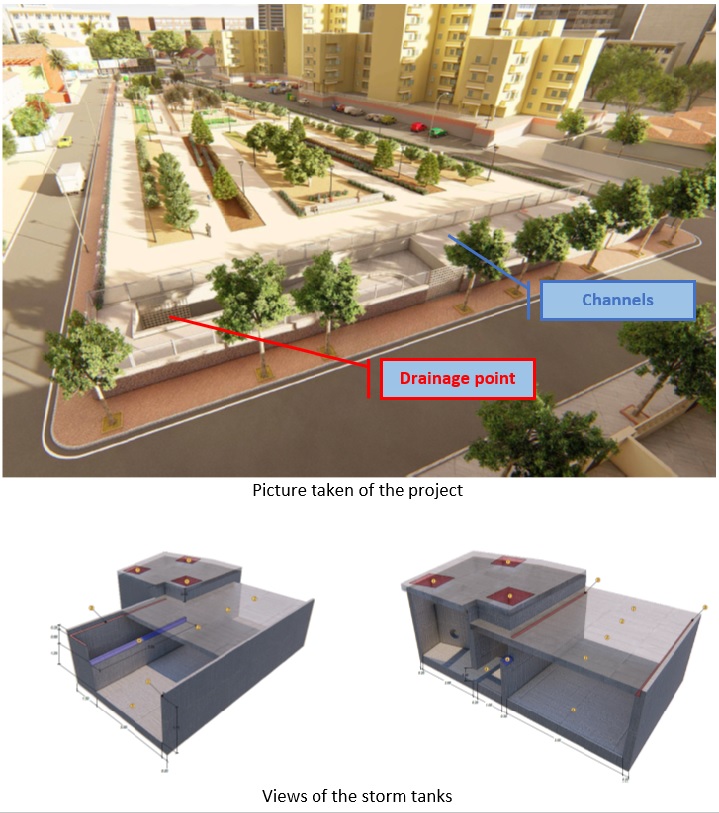
Creative solution.
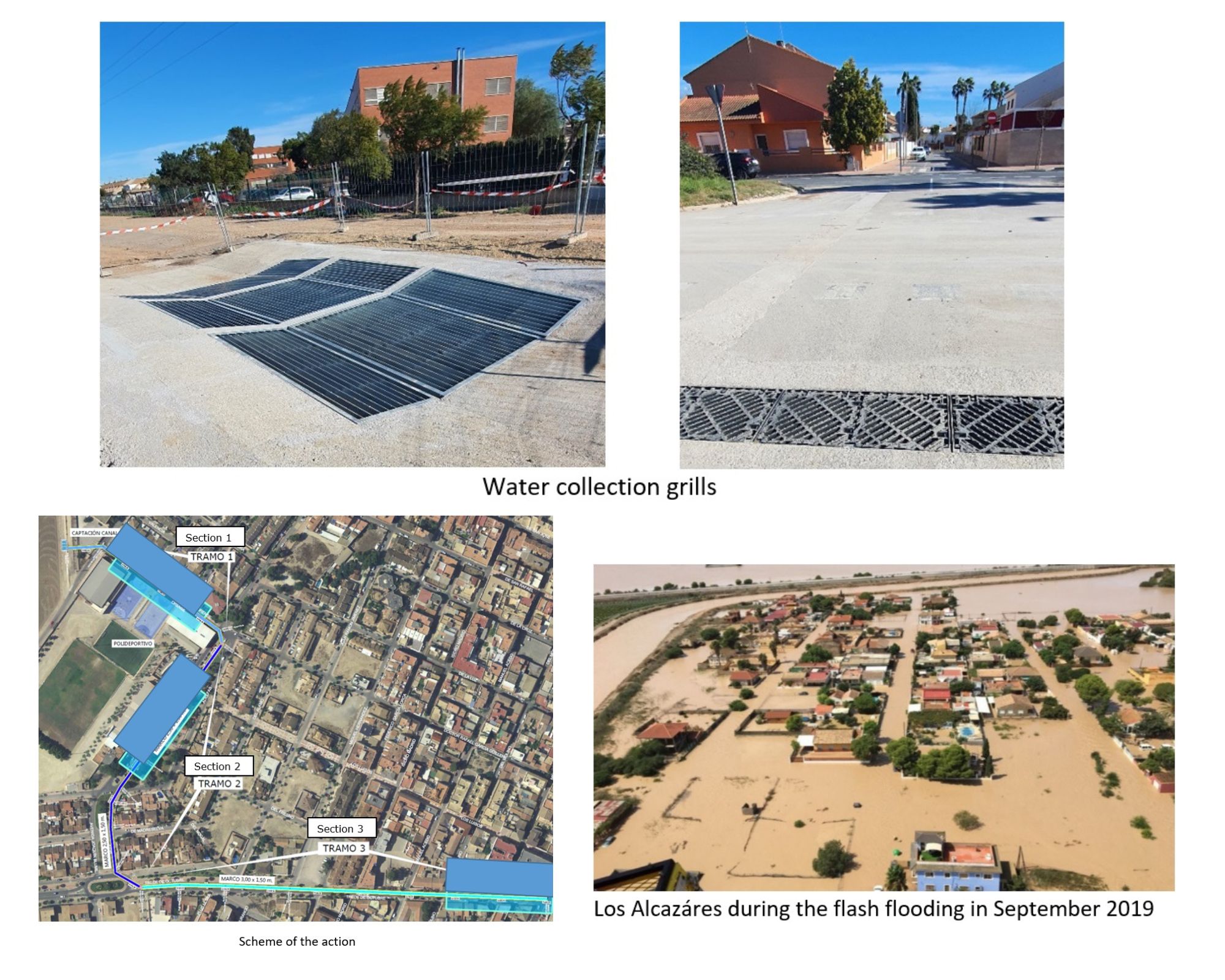
Rainwater harvesting with subsequent discharge to the separative network in Los Alcázares (Murcia).
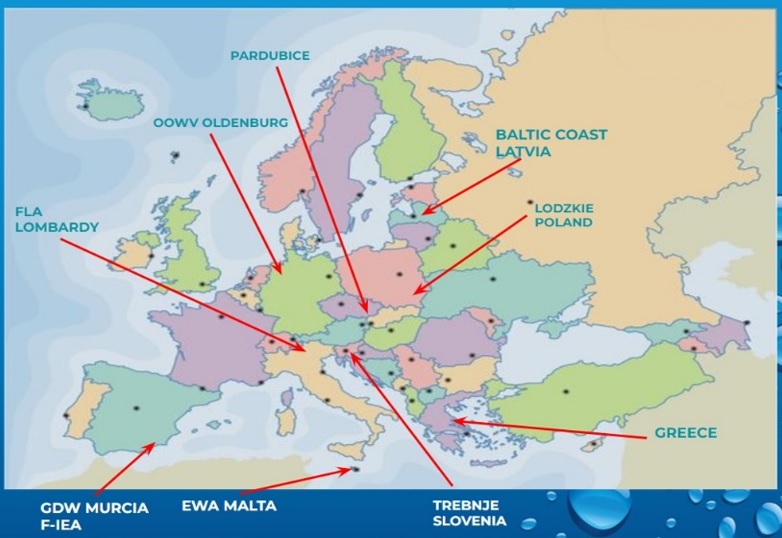
Concluding the AQUARES project.
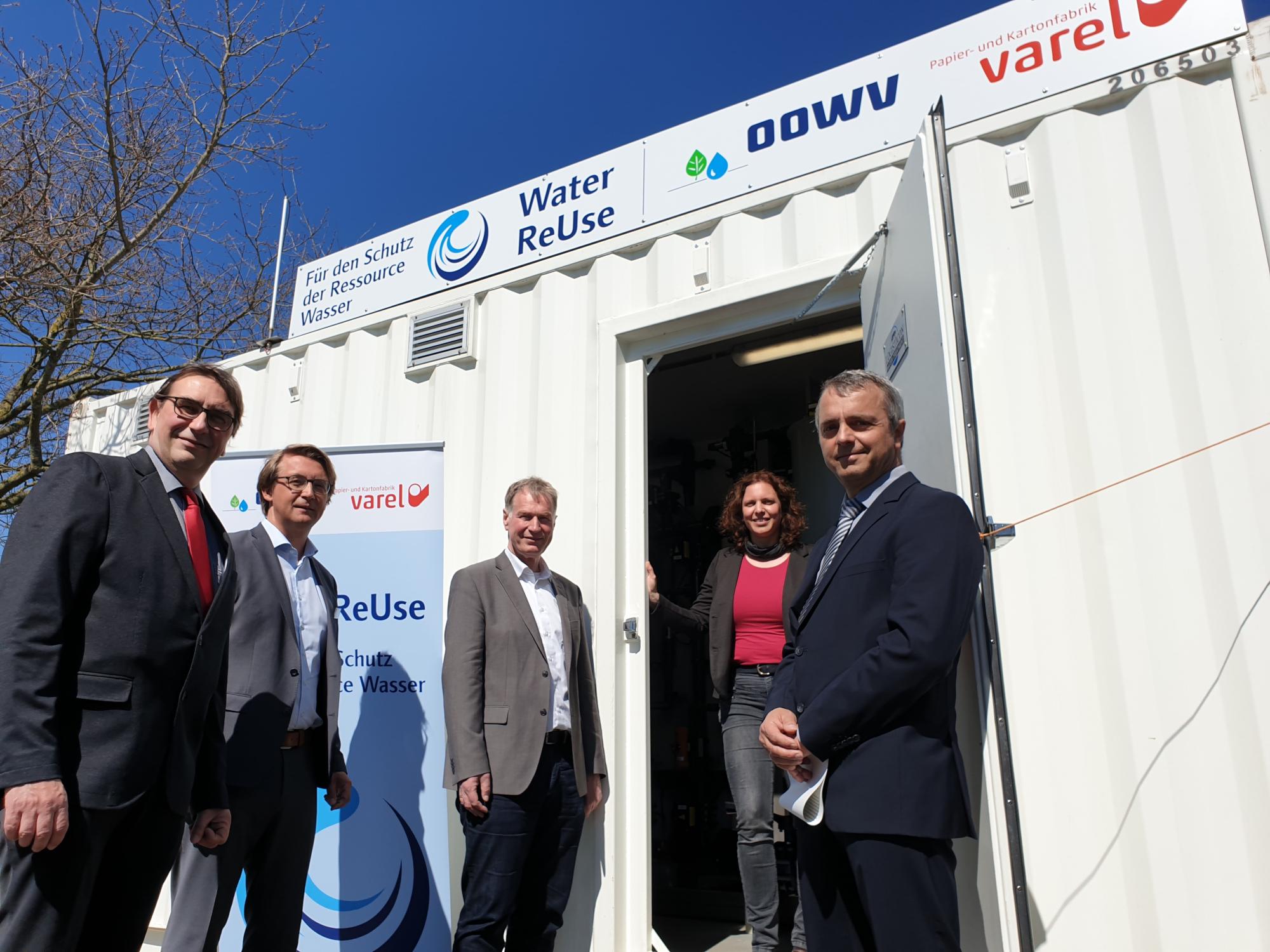
Good news from the Lower Saxony Ministry for the Environment, Energy and Climate Protection.
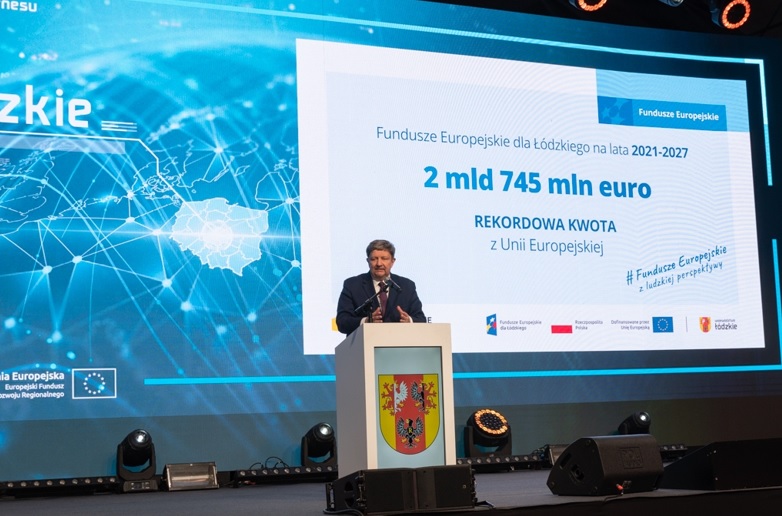
The European Commission has approved the program European Funds for Łódzkie 2021 - 2027.
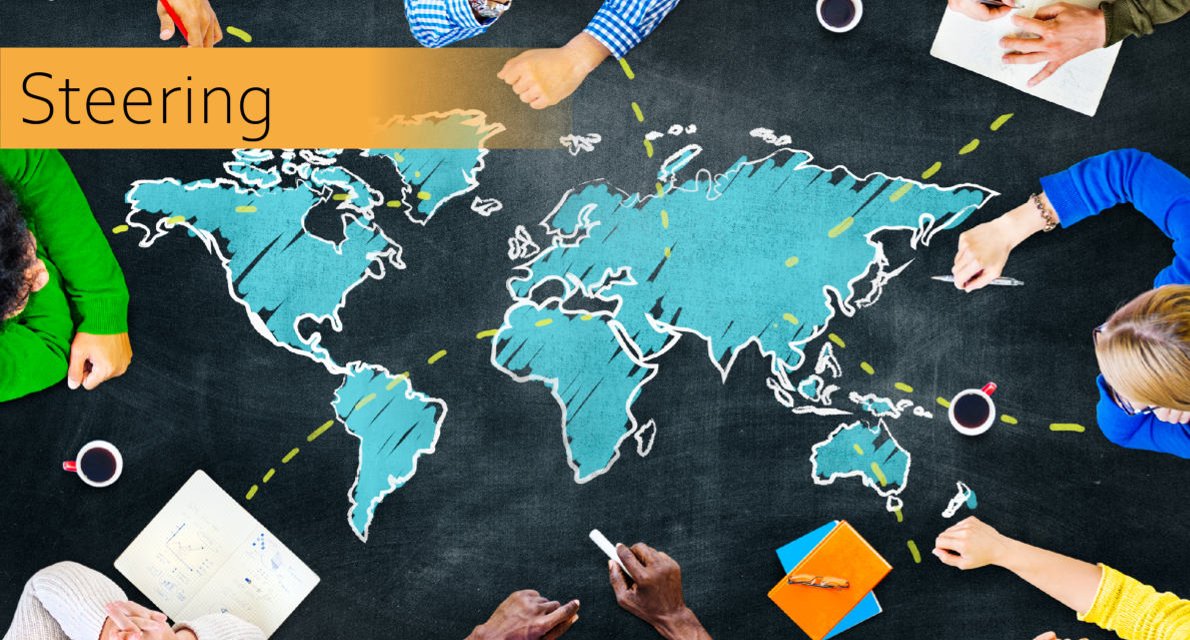
SAVE YOUR DATE
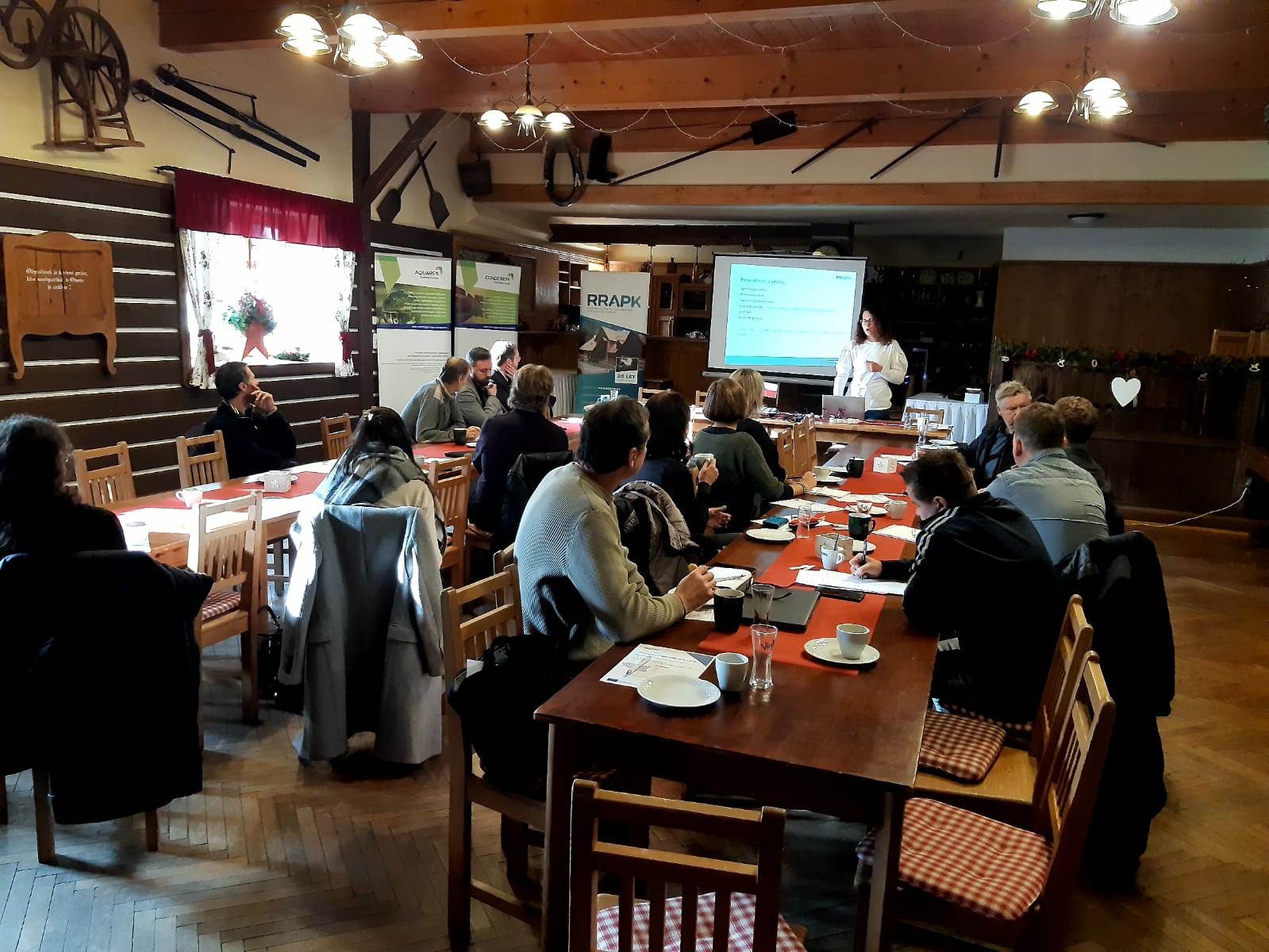
Activities of the action plan are in progress!
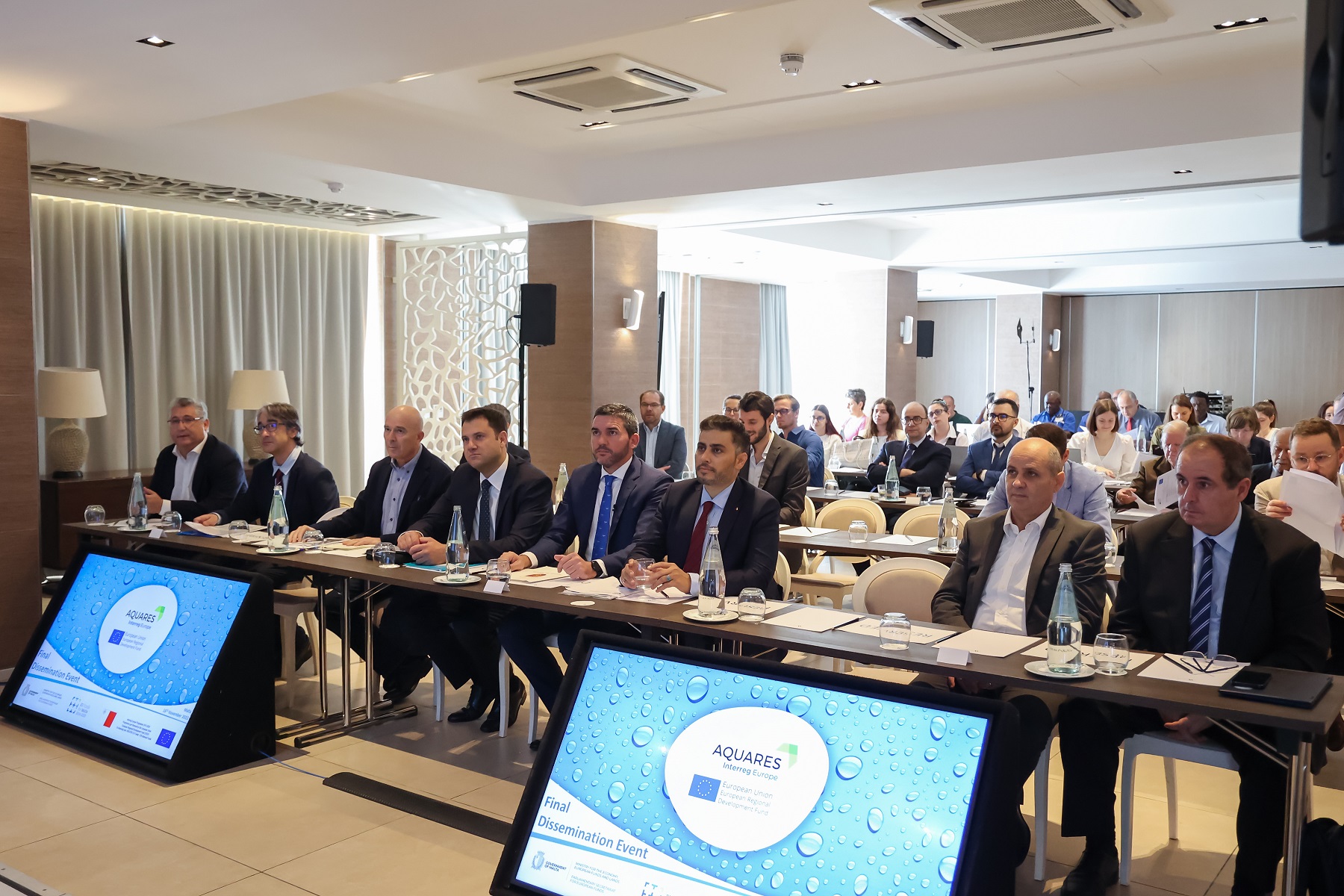
Final dissemination event
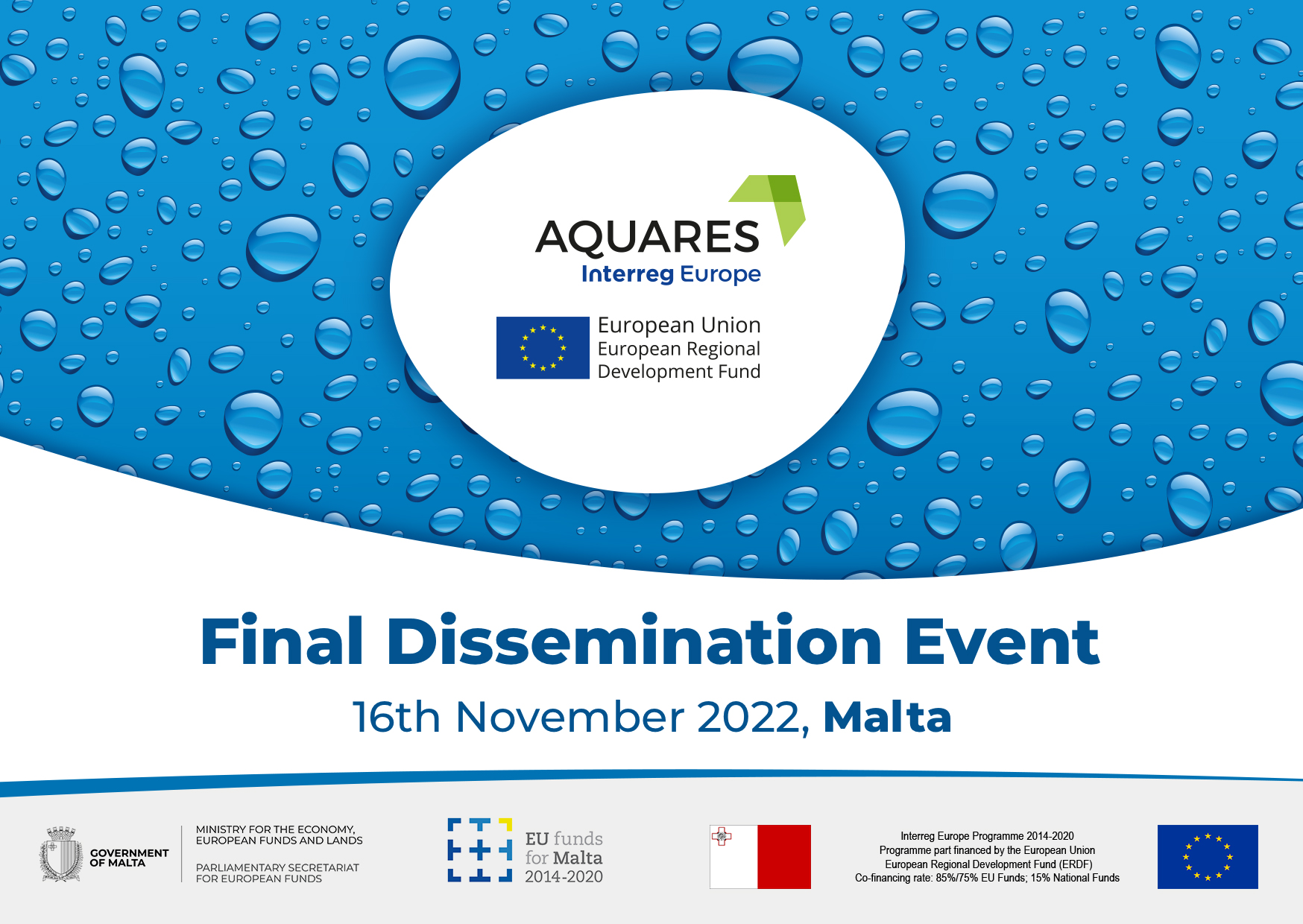
FINAL DISSEMINATION EVENT